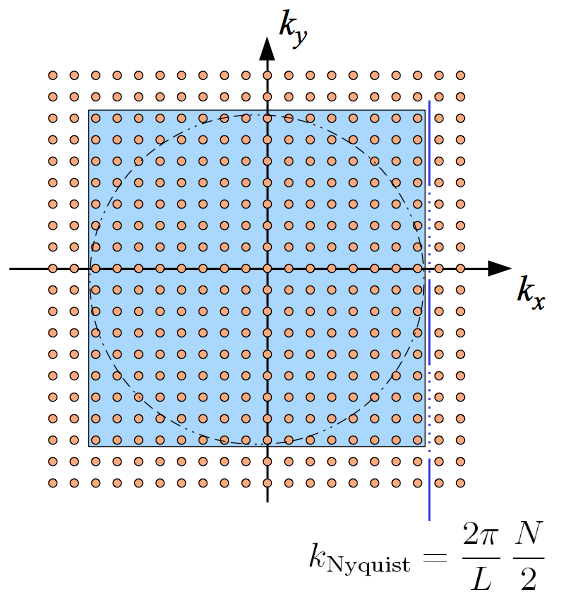NGenIC – Code

NGenIC is an initial conditions code for cosmological structure formation that can be used to set-up random N-body realizations of Gaussian random fields with a prescribed power spectrum in a homogeneously sampled periodic box. The code creates cosmological initial conditions based on the Zeldovich approximation, in a format directly compatible with GADGET or AREPO. For the unperturbed particle load, either Cartesian grids or a so-called glass distributions can be used. A deconvolution to compensate for interpolation smoothing can be enabled of desired. The initial power spectrum can be specified through different analytic fitting functions or through a table computed with a Boltzmann code like CAMB or CMBFAST. If desired, gas particles can be added in the initial conditions. The original form of this IC generator has been written several years back (2003) by Volker Springel. The code is MPI-parallel and suitable for creating very large initial conditions, if desired.
NGenIC has for example been used to create the initial conditions for the Millennium and Millennium-XXL projects (among many others), described in these publications, which may also serve as a reference to the code:
- Simulations of the formation, evolution and clustering of galaxies and quasars
Springel V., White S. D. M., Jenkins A., Frenk C. S., Yoshida N., Gao L., Navarro J., Thacker R., Croton D., Helly J., Peacock J. A., Cole S., et al. (2005)
Nature, 435, 629 [ADS] - Scaling relations for galaxy clusters in the Millennium-XXL simulation
Angulo R. E., Springel V., White S. D. M., Jenkins A., Baugh C. M., Frenk C. S. (2012)
Monthly Notices of the Royal Astronomical Society, 426, 2046 [ADS]
You may download the N-GenIC code as a compressed tar-file:
n-genic.tar.gz (~0.03 MB)
Please consult to the enclosed README file for instructions on how to use it. Note: An extension of this code that uses second-order Lagrangian Perturbation Theory (2LPT) to improve upon the Zeldovich approximation has been developed by Sebastian Pueblas, Roman Scoccimarro and collaborators and can be obtained from this site.
About HITS
HITS, the Heidelberg Institute for Theoretical Studies, was established in 2010 by physicist and SAP co-founder Klaus Tschira (1940-2015) and the Klaus Tschira Foundation as a private, non-profit research institute. HITS conducts basic research in the natural, mathematical, and computer sciences. Major research directions include complex simulations across scales, making sense of data, and enabling science via computational research. Application areas range from molecular biology to astrophysics. An essential characteristic of the Institute is interdisciplinarity, implemented in numerous cross-group and cross-disciplinary projects. The base funding of HITS is provided by the Klaus Tschira Foundation.